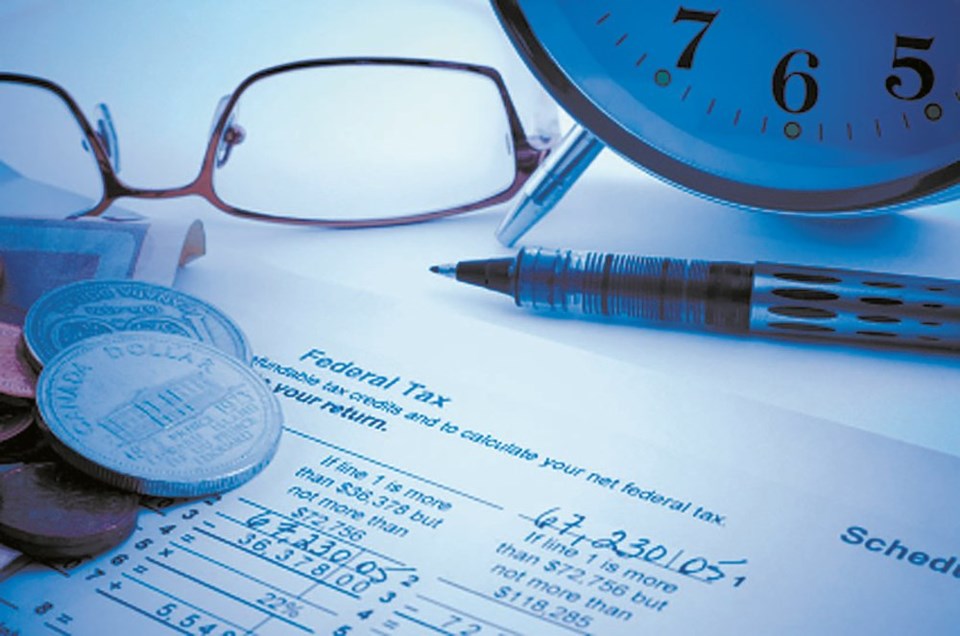WESTERN PRODUCER — Producers who claimed a federal tax credit meant to ease the carbon tax burden on farmers have faced weeks if not months of delays in receiving thousands of dollars in tax refunds, said an Alberta MP.
Federal legislation authorizing the Return of Fuel Charge Proceeds to Farmers Tax Credit didn’t receive final approval until June 9, said Conservative MP Damien Kurek in Camrose, Alta. As a result, tax returns by farmers who claimed the credit before that date couldn’t be processed by the Canada Revenue Agency, he said.
It meant tax refunds producers needed to help pay for the start of their operations this spring weren’t available at a time when they face soaring costs for inputs such as fuel and fertilizer, he said. Although he wasn’t sure how many of his constituents had contacted his office, he said the delay likely affected hundreds if not thousands of farmers and ranchers in Canada.
A total of about 140,000 tax returns involving either the Return of Fuel Charge Proceeds to Farmers Tax Credit or the Eligible Educator School Supply Tax Credit for teachers were affected, said spokesperson Hannah Wardell of the CRA in an email June 30.
“The CRA will work with impacted taxpayers to ensure that they get the credits they are entitled in a timely manner,” she said. “The CRA understands the impact this may have had on applicants and we appreciate their patience.”
Both tax credits were tabled by the federal government in December as part of Bill C-8, causing them to be added to tax preparation software.
The farm credit was automatically added to the returns of people who used TurboTax Online and selected “farming” from a list of self-employed income categories, said a statement on a TurboTax support website operated by Intuit Canada.
“If you’ve already filed your 2021 tax return and claimed one of these two credits, your return’s processing will be delayed in both assessment and refund disbursement,” it said.
Kurek said producers who unwittingly claimed amounts as small as about $100 or less under the farm credit saw the unexpected delay of thousands of dollars in individual total tax refunds. He called the credit minuscule compared to what farmers are С����Ƶ forced to pay in federal carbon taxes for what he described as little benefit to agriculture.
The lengthy delay over something the federal government had intended to help farmers has instead rubbed salt in their wounds, said Kurek, who is also the Conservative deputy shadow minister for rural economic development and rural broadband strategy.
“I’ve been an outspoken critic of the carbon tax generally and how it impacts not only the ag industry, but also increases the challenges and punishes, quite frankly, regular Canadians. And as a rural parliamentarian, it has a disproportionate effect on rural Canada. We don’t have a choice to jump on a bus in a small town in rural Alberta.”
However, the purpose of the tax credit “is to return a portion of the fuel charge proceeds from the federal carbon pollution pricing system directly to farming businesses in provinces that do not currently have a system that meets the federal requirements,” said Wardell. These are Alberta, Saskatchewan, Manitoba and Ontario, she said.
The CRA will pay compound daily interest on affected tax refunds based on rules under the Income Tax Act, she said. The calculation will start on the latest of three dates: May 30, the 30th day after a return was filed or the day a taxpayer overpaid their taxes, she added.
“If an individual filed their return without claiming the refundable credit, they can easily submit a reassessment request in respect of their 2021 return. They do not have to wait for the next filing season.”
Bill C-8 received its first reading on Dec. 15. Kurek said it was shortly before Parliament arose for the Christmas holidays, delaying approval of the measure from the start.
“So, the simple answer is that Liberal mismanagement has caused significant delays in the ability for them to accomplish their legislative agenda, and in this case, farmers, ranchers, teachers and a number of other groups of people ended up having their tax returns held up by the CRA until those provisions actually went through Parliament.”
He said the federal government would have done better to have helped farmers by instead following the example of jurisdictions such as the Alberta government, which paused the collection of a provincial gas tax of 13 cents per litre on April 1.
Alberta announced its tax pause on the same day the federal carbon tax was increased by 25 percent to a total of $50 per tonne of emissions.




